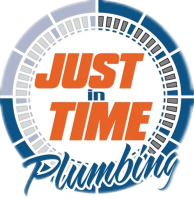While hard water is common in many areas, its impact on your plumbing system and appliances can be significant. Understanding the effects of hard water is essential for homeowners looking to maintain the longevity and efficiency of their plumbing infrastructure. In this blog post, we’ll explore the challenges posed by hard water and how it can affect your plumbing fixtures and appliances.
1. What is Hard Water?
Before delving into its effects, let’s define hard water. Hard water is water that contains a high concentration of minerals, primarily calcium and magnesium. As this water flows through your plumbing system, it leaves mineral deposits behind, leading to various issues.
2. Scale Buildup in Pipes:
One of the most noticeable effects of hard water is the accumulation of scale in your pipes. Over time, mineral deposits can form a layer of scale on the interior surfaces of pipes, reducing water flow and causing potential blockages. This can lead to decreased water pressure and compromised water efficiency.
3. Reduced Efficiency of Water-Using Appliances:
Hard water can significantly impact the efficiency of your appliances that use water. Here’s how:
- Water Heaters: Scale buildup in water heaters can reduce heating efficiency, leading to increased energy consumption and higher utility bills. It may also shorten the lifespan of the heater.
- Dishwashers: Hard water can leave spots on glassware and dishes, and it may require more detergent for effective cleaning. Over time, scale can affect the performance of heating elements.
- Washing Machines: The efficiency of washing machines can be compromised as scale builds up, affecting the cleaning power and potentially leading to mechanical issues.
4. Faucets and Showerheads:
- Clogging: Mineral deposits can accumulate around faucets and showerheads, leading to clogs. This can affect water flow and, in the case of showerheads, result in uneven spray patterns.
- Aesthetic Impact: Hard water can leave unsightly stains on faucets and fixtures, affecting the overall appearance of your kitchen and bathroom.
5. Soap and Detergent Inefficiency:
- Soap Scum: Hard water reacts with soap to form soap scum, making it more challenging to achieve a lather. This can impact the effectiveness of cleaning agents and result in residue on surfaces.
- Laundry Issues: Hard water can reduce the effectiveness of laundry detergents, leading to less efficient stain removal and potentially causing fabrics to feel stiff.
6. Appliance Longevity:
- Reduced Lifespan: Appliances that regularly come into contact with hard water may experience a shortened lifespan due to the strain caused by scale buildup and increased wear on components.
7. Addressing Hard Water Issues:
- Water Softeners: Installing a water softener is an effective solution to reduce the hardness of water, preventing scale buildup and mitigating its adverse effects on plumbing and appliances.
- Regular Maintenance: Schedule regular maintenance for water heaters, appliances, and plumbing fixtures to address any scale buildup promptly.
Conclusion:
Understanding the impact of hard water on your plumbing and appliances is the first step towards effective mitigation. If you suspect hard water issues in your home, consider consulting with the experts at Just in Time Plumbing. With the right solutions in place, you can protect your plumbing system, enhance the efficiency of your appliances, and enjoy the benefits of a well-maintained home.

